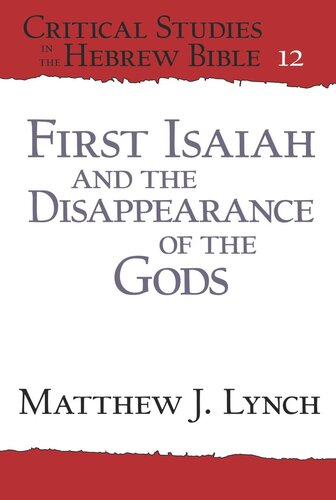

Most ebook files are in PDF format, so you can easily read them using various software such as Foxit Reader or directly on the Google Chrome browser.
Some ebook files are released by publishers in other formats such as .awz, .mobi, .epub, .fb2, etc. You may need to install specific software to read these formats on mobile/PC, such as Calibre.
Please read the tutorial at this link: https://ebookbell.com/faq
We offer FREE conversion to the popular formats you request; however, this may take some time. Therefore, right after payment, please email us, and we will try to provide the service as quickly as possible.
For some exceptional file formats or broken links (if any), please refrain from opening any disputes. Instead, email us first, and we will try to assist within a maximum of 6 hours.
EbookBell Team

4.0
86 reviewsIsaiah 1–39 uses the unique term אלילים—usually translated as “idols”— more than anywhere else in the Hebrew Bible. Using this linguistic phenomenon as a point of departure, Matthew J. Lynch reexamines the rhetorical strategies of First Isaiah, revealing a stronger monotheizing rhetoric than previously recognized.
Standard accounts of Israelite religion frequently insist that monotheism reached its apex during the exile, and especially in Deutero-Isaiah. By contrast, Lynch’s study brings to light an equally potent mode of monotheizing in First Isaiah. Lynch identifies three related rhetorical tendencies that emphasize yhwh’s supreme uniqueness: a rhetoric of avoidance, referring to other deities as idols (אלילים) to avoid conferring on them the status of gods (אלוהים); a rhetoric of exaltation, emphasizing yhwh’s truly exalted status in opposition to all that which exalted itself; and a rhetoric of abasement, fully subjugating all other claimants to absolute power—whether human or divine—before the divine king.
Succinctly and persuasively argued, Lynch’s book will change how biblical scholars understand the nature and development of Israelite monotheism.